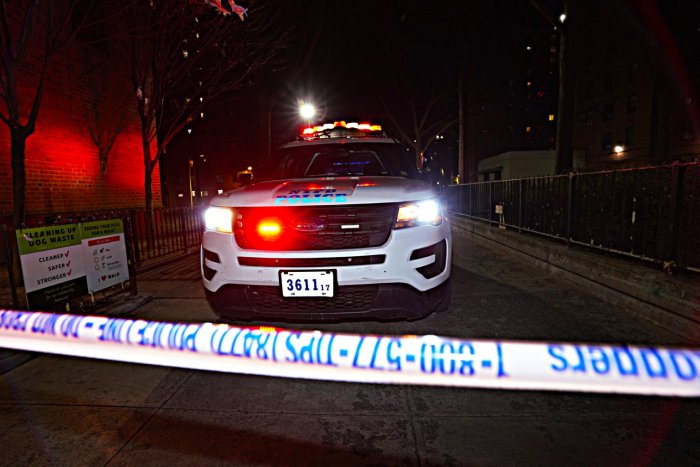The West Nile virus killed a 73-year-old Jackson Heights man, who became the first to die of the disease in the city in two years Sunday as three other Queens residents battled the disease.
By Courtney DENTCH
The West Nile virus killed a 73-year-old Jackson Heights man, who became the first to die of the disease in the city in two years Sunday as three other Queens residents battled the disease.
The man was hospitalized Friday with encephalitis, or an inflammation of the brain tissue, the disease caused by the West Nile virus, the city Health Department said. He died two days later.
The death marks the sixth known city case of West Nile infections and the fourth in Queens this year.
An 86-year-old Beechhurst woman was hospitalized with encephalitis on Aug. 22 and is recovering in stable condition. The woman lives near Powell’s Cove, where the virus appeared for the first time in the Western Hemisphere in August 1999.
An 85-year-old Richmond Hill woman also tested positive for the virus after she was hospitalized on Aug. 25 with a fever, a stiff neck, and an altered mental state, the Health Department said.
In the fourth Queens case, an 84-year-old Rosedale man remained in intensive care after he was diagnosed with the disease Aug. 15.
Two Bronx women, ages 71 and 27, have also contracted the disease. Both are hospitalized and in stable condition, the Health Department said. The names of the afflicted people have not been released.
“In the city’s four years’ experience with West Nile virus, the last week of August has tended to be the time when most new infections occur,” said City Health Commissioner Dr. Thomas Frieden. “However, with warmer temperatures expected, we are not out of the woods yet.”
The Jackson Heights man most likely contracted his fatal case of the virus from a mosquito, although it is unclear whether he was bitten in Queens or in the Hamptons, where he reportedly spent time this summer, Frieden said.
“We may never know for certain where that individual contracted West Nile virus,” he said.
The West Nile virus is carried by birds and transmitted to human beings by mosquitoes. Only about 1 percent of people bitten by infected mosquitoes develop a serious infection, which could lead to encephalitis.
“As the death of an otherwise healthy 73-year-old shows, West Nile virus can have tragic consequences for its victims,” Frieden said. “This is why New Yorkers over 50 years of age are especially advised to take precautions against mosquitoes by wearing long-sleeve clothing between dusk and dawn, ensuring that screens around the home are tight-fitting and without holes and by using a mosquito repellent when outdoors.”
The Health Department has been spraying parts of Queens with the pesticide Anvil to curb the spread of adult mosquitoes carrying the virus. College Point, Bay Terrace and Bayside were sprayed Aug. 17, and Rosedale and Brookville were sprayed Aug. 20.
The city was planning to spray northern Queens Wednesday night. The spraying was scheduled to take place from 8:30 p.m. Wednesday to 2 a.m. Thursday in the College Point, Whitestone, Beechhurst, Linden Hill and Murray Hill areas of the borough.
The city was also planning to spray southwestern Brooklyn Thursday night and Friday morning, the Health Department said.
The virus thrives in mosquito pools, where the insects breed abundantly. In Queens alone, 33 mosquito pools have been found and 21 dead birds have tested positive for the disease this year, the Health Department said.
The nationwide death toll has reached 32, and more than 600 cases have been confirmed. In New York state, one Suffolk County man has died due to the disease and two others have contracted the virus. A Nassau County man and two upstate residents also have developed infections.
Reach reporter Courtney Dentch by e-mail at TimesLedger@aol.com, or by phone at 229-0300, Ext. 138.



































